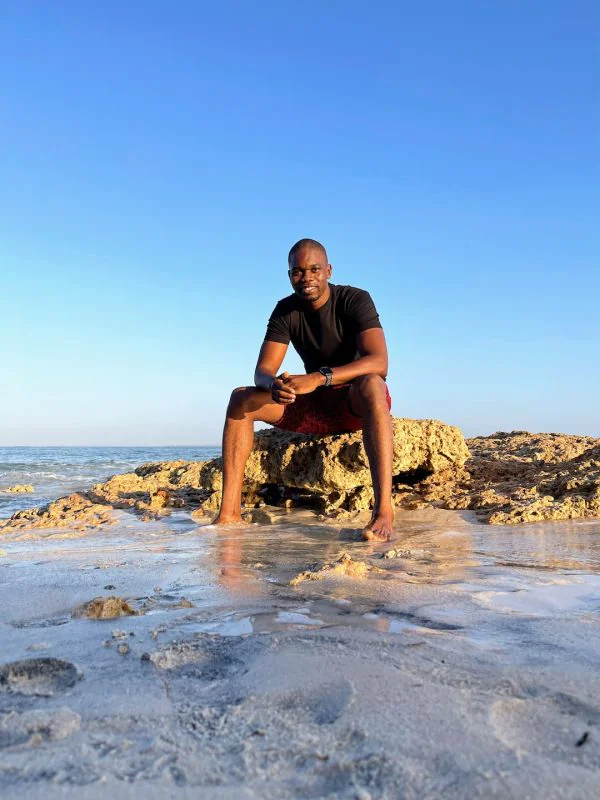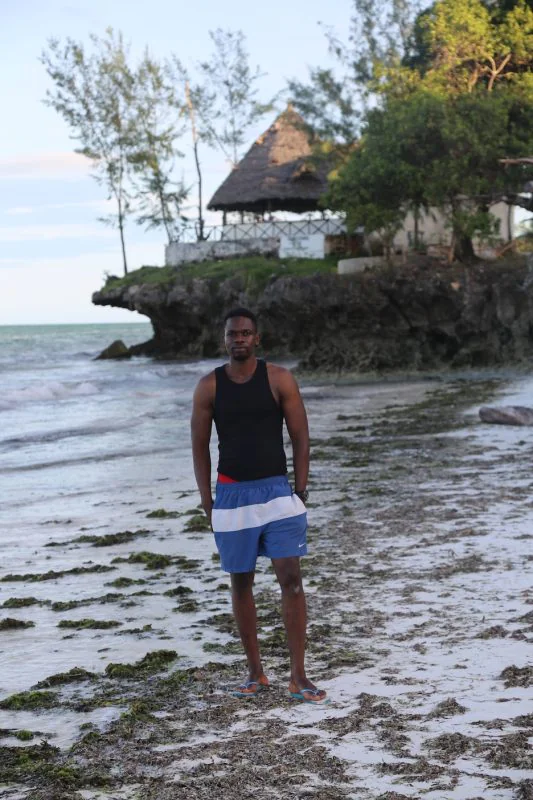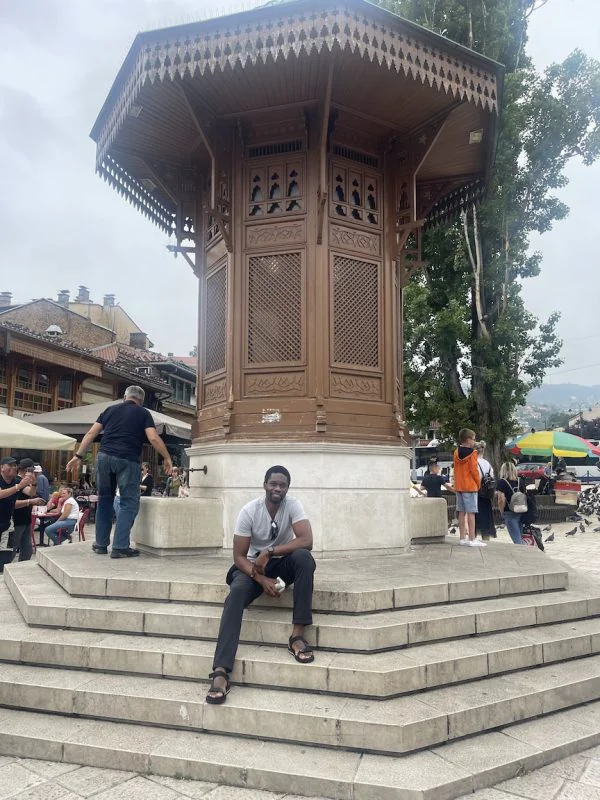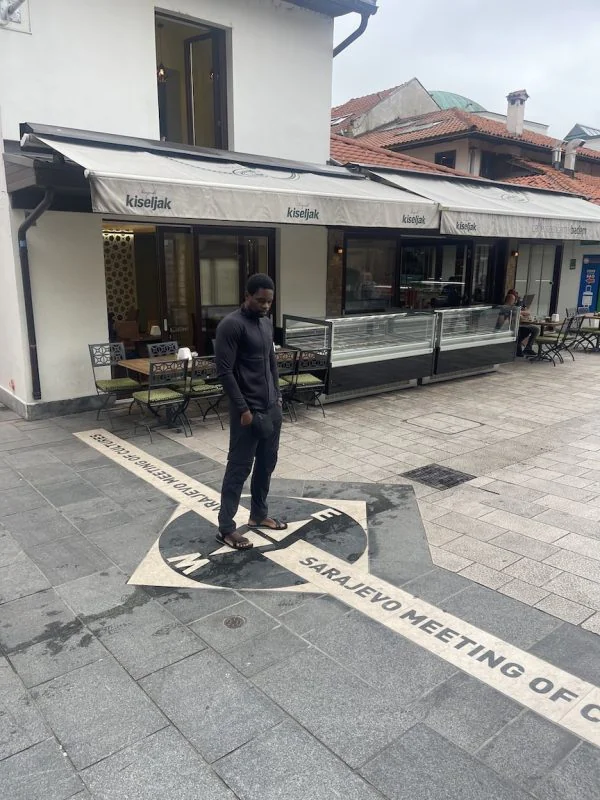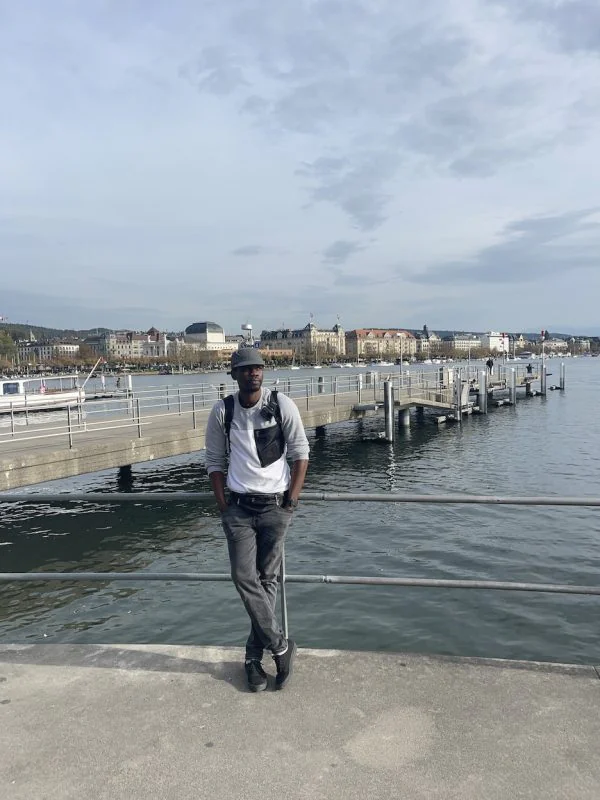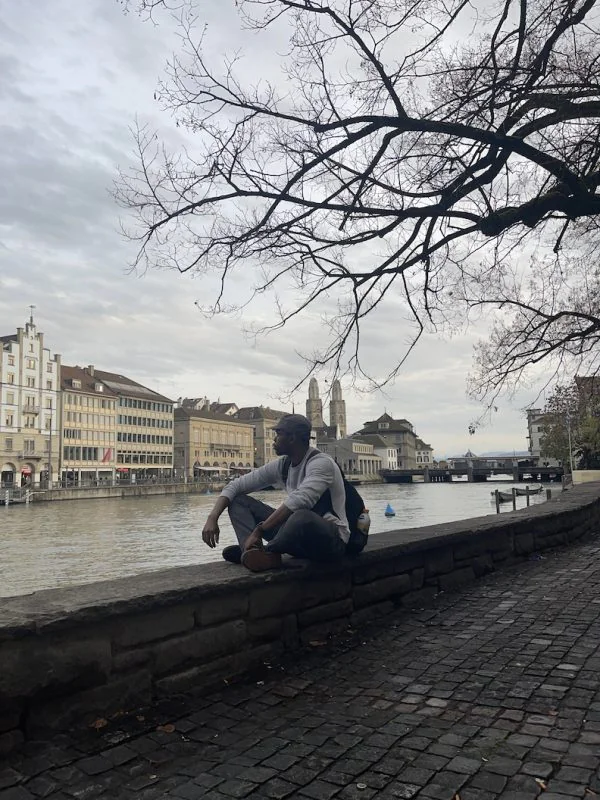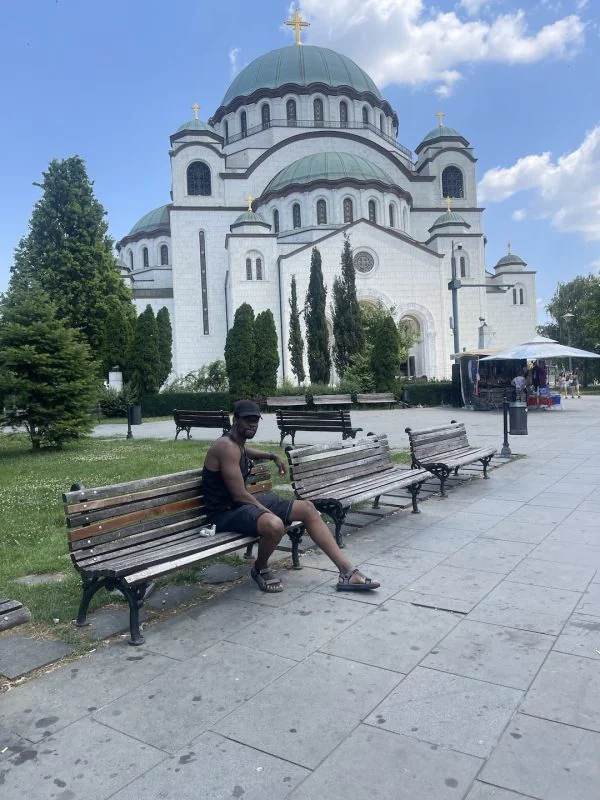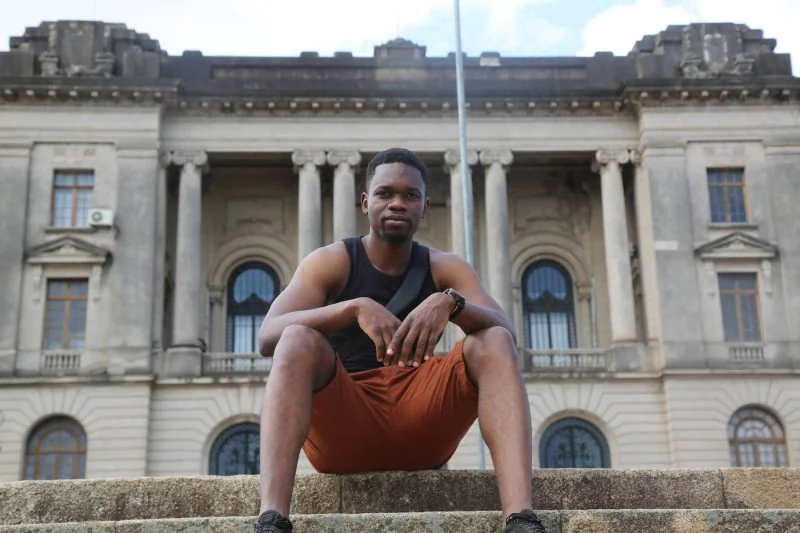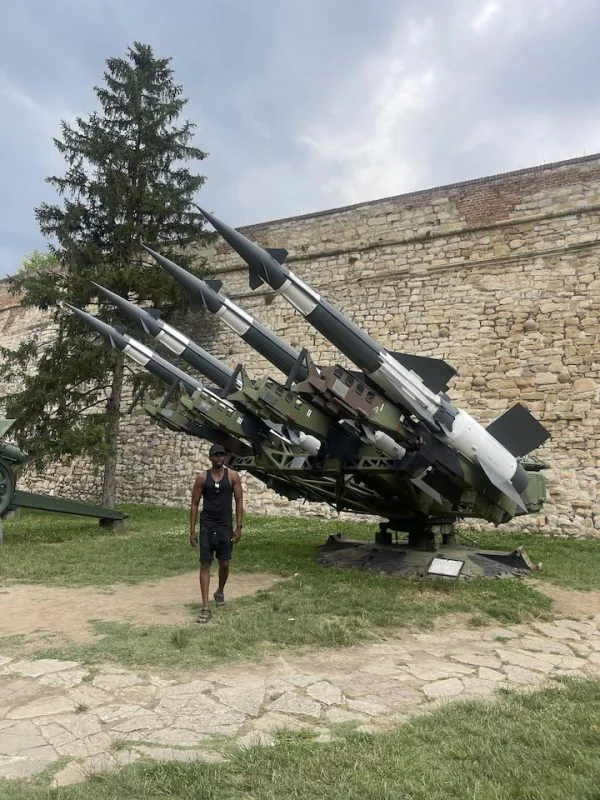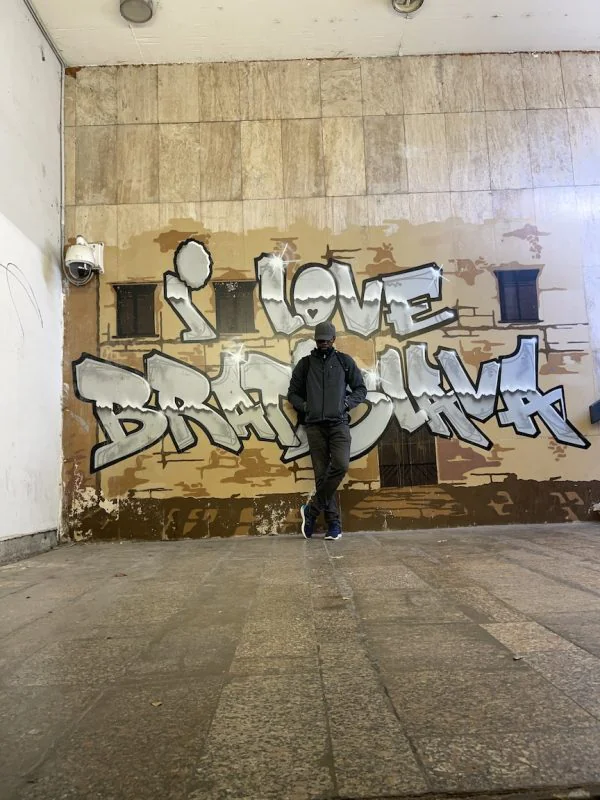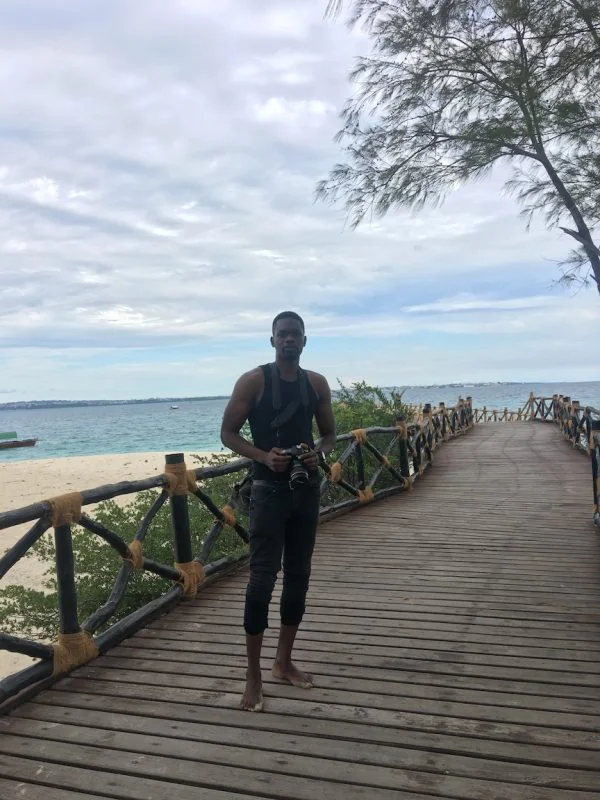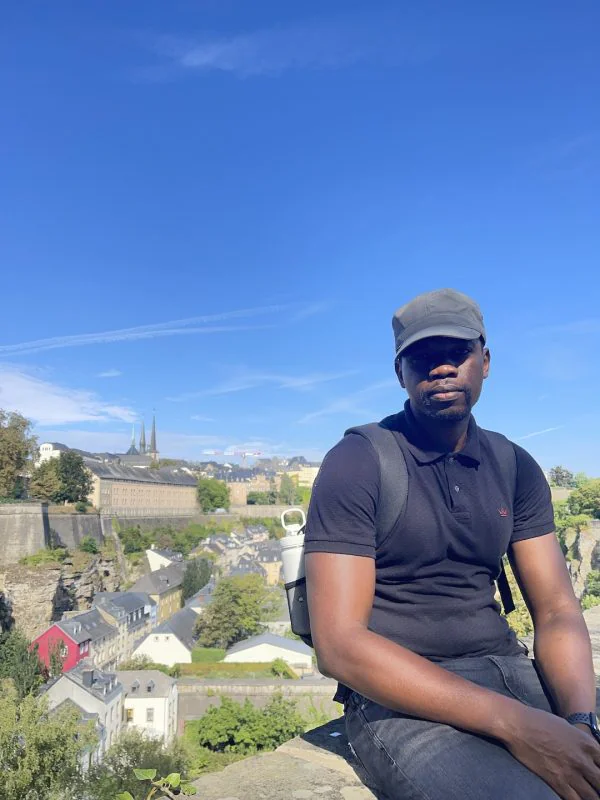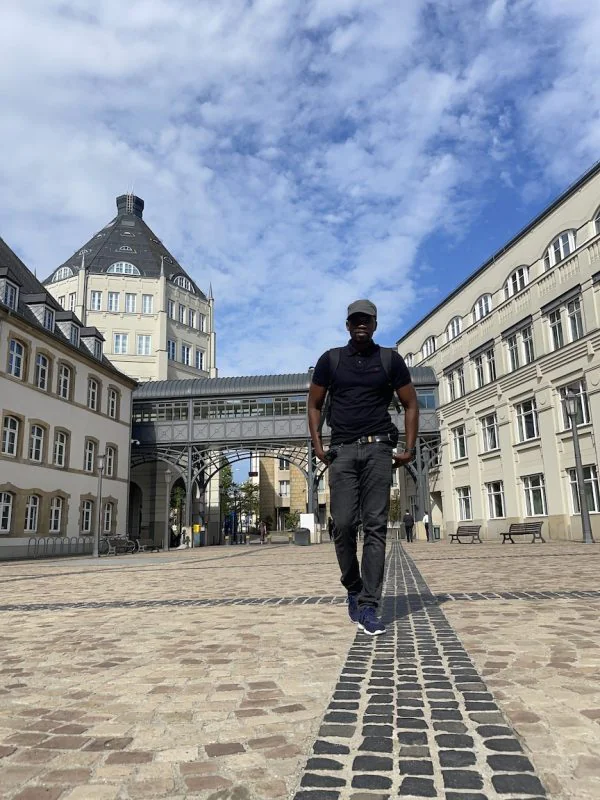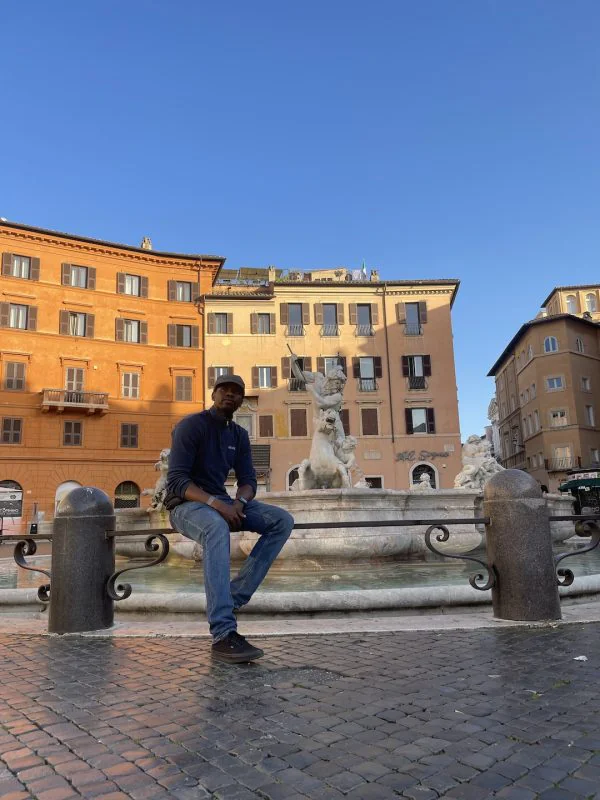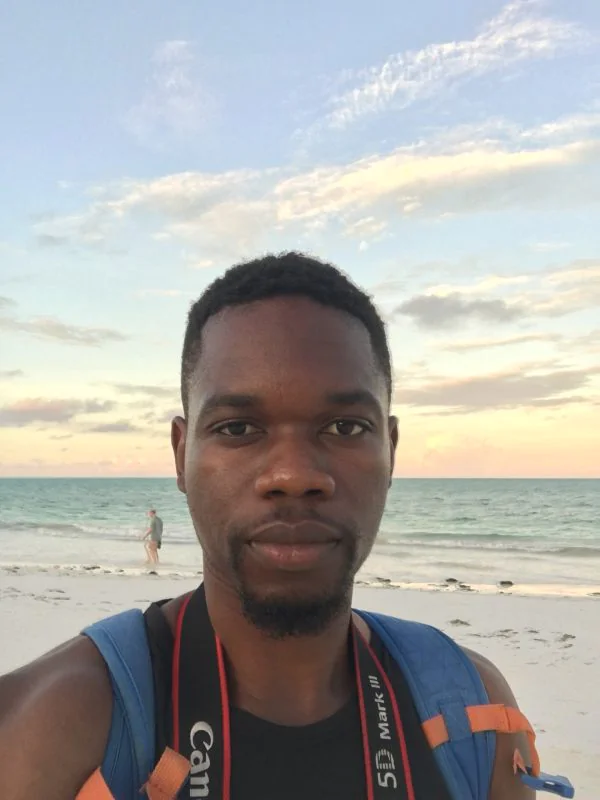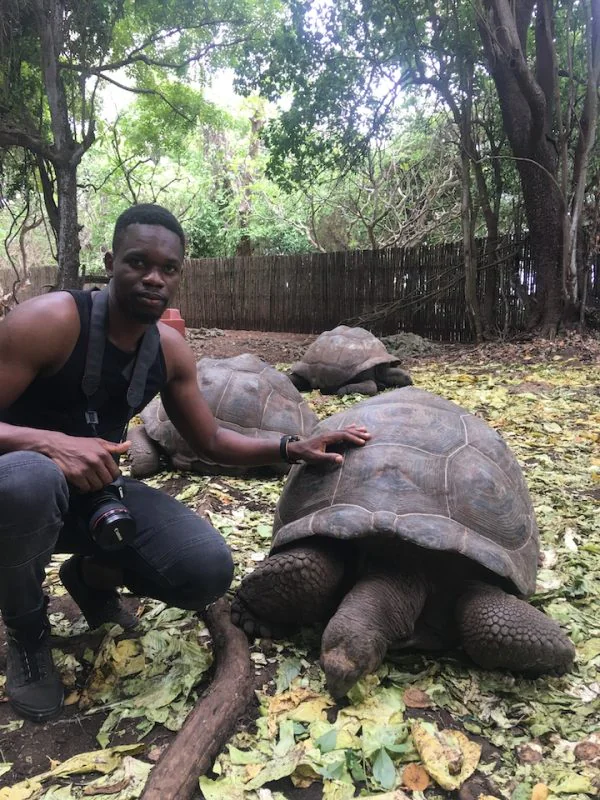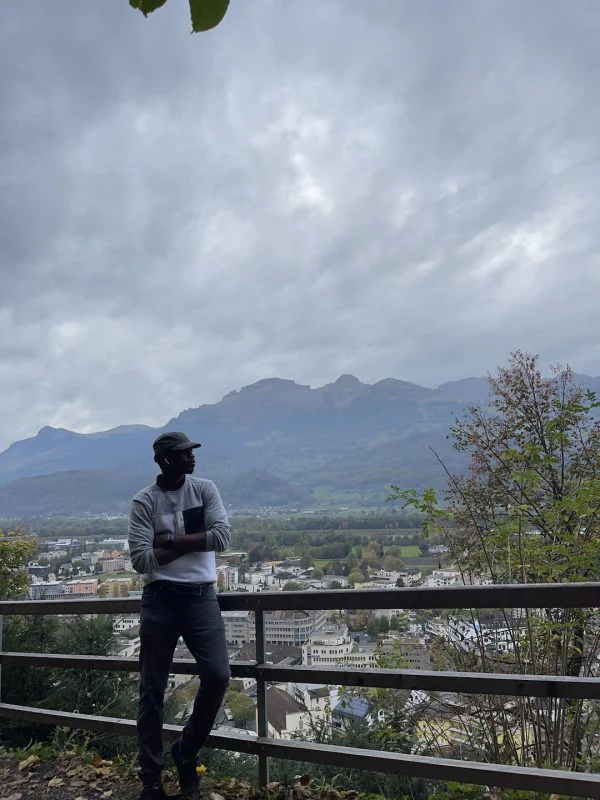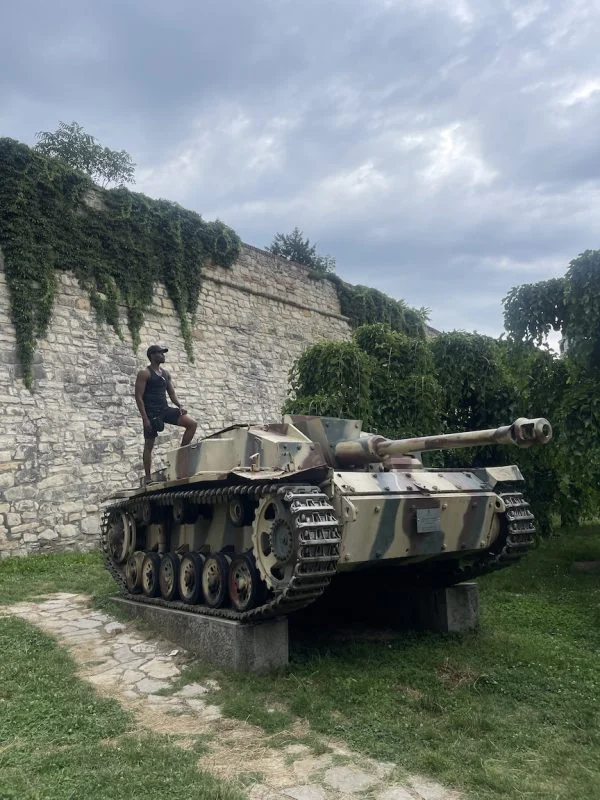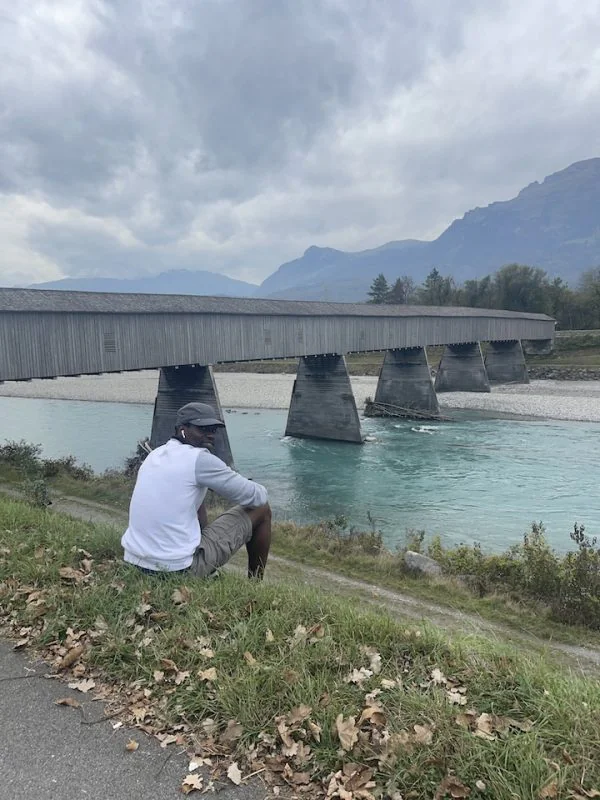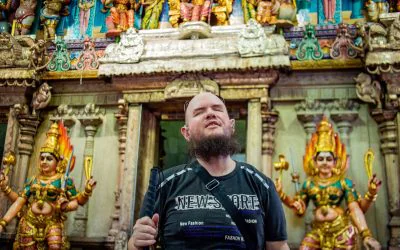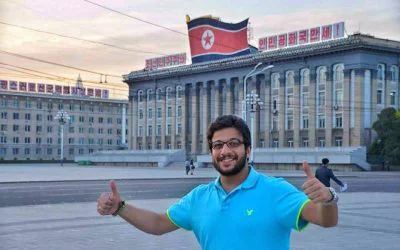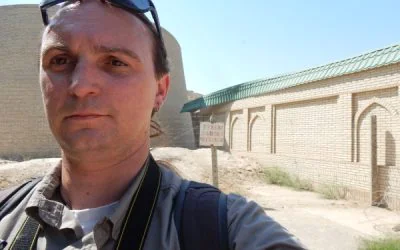Meet Aboubacar Douno, a passionate world traveller from Guinea. He has so far travelled to 75 countries and is fluent in five languages. He is also an envoy coordinator at NomadMania and builds ventures with 54 Startups, which seeks to build innovative startups for Africa and the world.
You can also watch this interview in video form on our NomadMania Youtube channel.
First off, tell us about you, a bit of your background and how you started travelling. What was the spark for you?
My name is Douno and I’m from Guinea. I’m a software developer. Currently, I run a startup studio called 54 Startups, and we build innovative startups in Africa. And when it comes to travelling, I actually started travelling mostly because of work. I used to work in a nonprofit back in the day, and we used to do a lot of work trips in a lot of African countries, as well as going to the US and coming to Europe for training and meetings.
I had amazing travel benefits. We had this package from my job where we could go anywhere around the world. There was a certain amount that we could use just for travelling. If I didn’t use it up, I would lose the money. So I spent my time looking for places to go to so I could use up the funds. I think my first 30-35 countries that I went to were all either work-related or thanks to the job that I used to have back in the day. I realised that by the time I got to country number 30 that I really enjoy travel. So why not just keep going? That’s how I got into it.
How do you balance work and travel?
The job that I had offered so much, because my initial travel was work-related and also a lot of it was remote work. This was before COVID and before remote work became a bigger thing. So I had like a certain number of days a year where I could actually work remotely. So that kind of helped a lot with that balance.
What are your biggest travel interests? Where do you go before you go anywhere else? What do you like to do or see when you travel?
The biggest thing for me when I travel is learning about new cultures or learning something new about a country or a specific place. So I usually go to local places, like as local as possible. I don’t really do museums a lot. I feel like once you’ve done like three or four of the major museums in Paris or in London, they’re kind of all the same.
I usually tend to go to local restaurants to try to meet local people as much as possible to learn about a culture. Because for me, the most interesting thing about travelling is learning about a new culture, discovering a new country, and hearing a new language. I’m really passionate about learning languages. Whenever I land somewhere, I hear people speaking a new language and I think it’s really great!
And also trying the local food. If the city that I’m in has an old town, I tend to go to these spaces and I try, as much as possible, to join the locals rather than the tourists. I also go to the usual tourist places in almost every country, but my focus is anywhere I can get as close to the culture as possible.
Do you have any favourite countries? And if you do, what about these places makes you feel that special connection?
That’s always a hard question because it keeps changing almost all the time. One of my favourites is Turkey. Istanbul is just so amazing because first you have this blend of cultures. You have Asia, you have Europe, and you have really amazing food. Everything about the city just seems really idyllic, and you have a lot of history, but it’s also so modern. It’s a great culture. I really love walking like the streets of Istanbul. I was really shocked when I went there because to be honest, I was not expecting that much. I don’t think I would live there because, but I would go there whenever I can just because the experience was so wonderful.
So if I have to pick a second one, it has to be Albania. Albania is one of those hidden gems, which is not so hidden anymore. People were really, really amazing there. People were so friendly. One of the things when I travel is I like to see how friendly the locals are. The more I bond with the locals, the more I really remember the country. This is a place where I would really love to come back to. The people, the food, and the culture are all amazing.
I think my favourite part of the world is the Balkans, like Albania, Bosnia, all those places. It’s just the culture and history they have. The great thing about Albania, especially, is just the fact that it was a country that was closed off for so long, and then when you go there, you learn so much about the history. The people went through a lot and I see that. Places like Bosnia, especially Sarajevo, went through war and you see that as well. There’s so much. I learned so much from that trip. Those are like some of the places that I really love.
It sounds like your travels have changed you or changed your views of the world. Could you tell us a little bit about that?
Yeah, definitely. I’m a very open-minded person. I always loved the idea that every country, every part of the world has different ways of doing things. Cultures are different in certain ways. So the more I travel, the more I realise that people have so many ways of doing things. I come from Guinea, a small country where we have really strong traditions. People believe they’re set in their ways, that’s it, you don’t question it.
But then you go somewhere else and you realise that there are really different ways of seeing life. For example, at one point I was living in northern Nigeria where everything, like everyone wears a hijab and everyone’s covered. Everyone’s very, very traditional. Then I went from northern Nigeria to Rio de Janeiro in Brazil, which is like, everyone is on the beach not wearing anything. It was pretty shocking after three years in the north of Nigeria!
That’s the thing about travelling. It makes me happy when I see it, because it’s so different. So I think travel has taught me that you have to be more tolerant, you have to be more accepting of people and the culture. Travelling has given me an openness to different experiences and ideas. For example, there are certain foods that in some places in Africa we would not eat, but they will eat in other places. And you also have to try to really understand where people are coming from instead of just jumping and saying “that’s a bad idea.” This is what travelling is for me.
Have you had any big surprises on your travels so far or any surprising experiences or countries that surprised you?
I don’t think I’m usually surprised all that easily, because I’m already so open. I tend to watch documentaries or research the places I’m going to visit beforehand so I usually go expecting something. One instance I can think of was when I visited Slovakia. I had zero expectations and Bratislava was just a place I had intended to check off the list. I was surprised at how friendly people were. It surprised me so much that I’ve gone back since.
Another one was Kosovo. I expected with U.S. military presence that there would be some African Americans, but I was the only black person walking the streets. I knew it would be an interesting experience, because obviously there aren’t many black people in this area. You never know how people are going to react. Everyone was staring at me and I was trying to avoid eye contact at first, but eventually I made eye contact with some school kids and they immediately rushed over to me, gave me high fives, and wanted to talk. It was a very cool experience and it shows that people are great everywhere.
What are some hidden gems that travellers might miss when travelling to your home country, Guinea? What are your favourite places to visit when you go there?
So when I go to Guinea, I think probably my favourite places are the islands. Most people will focus on Conakry and then maybe the Futa region. Occasionally they’ll go to the islands near Conakry, which have some interesting places like waterfalls. Normally people only go to the beaches, but the waterfalls are a good hidden gem. I only discovered it when I was doing a website for an association for the islands when they wanted to promote tourism. I came across places I didn’t even know existed!
I would also recommend Dalaba in the Futa region. There’s also the town I was born in, Boke. It has some colonial buildings and has one of the biggest museums in Guinea, a museum full of collections from different cultures of the region. I used to play in the museum and play with the traditional musical instruments. I’m not sure how we got away with that! Boke is not really on anyone’s radar, unless maybe they’re coming from Guinea-Bissau. Anyone stopping through should stop at the museum. In my opinion it’s better than the one in Conakry so it’s worth seeing if you’re in the area.
You travel with a Guinean passport. Can you share some of the challenges you faced while travelling with your passport?
I can’t go to many countries without a visa. The number of countries I can go to without one is very small. I’m definitely on the low end of passport strength. I get stopped almost every time I go through immigration. I’m always nervous because I know it won’t be a fun experience like 90% of the time. I’m fine in the Schengen Zone, because I live in France, but when I go to a country that isn’t in Schengen I always get stopped and searched. I had this experience in both Romania and Bulgaria. I was there for almost an hour being searched in each country. I’ve come to expect it so at this point I’m used to it. Whenever I go somewhere I know I will have to account for at least one hour or more being spent with immigration.
Thanks to having French residency I can go to some places without a visa now. For example, I was able to go to Georgia without a visa, although I was still pulled aside immediately. I had to show my bank account details on my phone and answer a lot of questions about what I was doing in the country. This is a pretty typical immigration experience for me and I just have to deal with it. I have never been refused entry anywhere, but I know that I must have my hotel reservation and return flight to show.
Even when I go to places where I don’t need a visa I always carry cash on me to show that I can pay for my stay. This seems to be pretty common for travellers with African passports. We have to be very well prepared in advance for these things. I’m used to it, but I think you have to be able to laugh about it, because otherwise you will go insane.
What advice would you give to those people who dream of travelling the world but feel like it’s not within their reach because of their low index passport?
I get this question a lot from Africans and travellers with low index passports. I think the first piece of advice I would give would be that you need to have the financial means to travel. That might sound very obvious, but even in places where you don’t need a visa you will probably be asked to show you have the financial means to pay for your stay. So get a good job or business, get your source of income, and have savings.
When it comes to travel itself, start travelling a lot. Go to countries that don’t require a visa for your passport. Singapore is a good one, it’s open to pretty much everyone. Malaysia is also a good one. The main thing is to collect passport stamps and with your stamps you have a travel history. When you start needing to get visas people will look in your passport and see that you travel a lot and that you will probably return home. Blank passports look like a potential migrant. So the bigger a travel history you can have with stamps, the better.
The third piece of advice I can give for visas would actually be to get a US or Canadian visa. With a US visa for example, it can be valid for ten years. Many countries will see that visa in your passport and it opens doors. In many cases a US or European visa can be a substitute for visas in other countries, which see the US or European visa and waive their own requirements as a result. This is how I visited places like Georgia and the Balkans.
What is it about travel that gets you the most excited? And what is it that keeps you going when things get tough while travelling?
Every time I learn something in a new place, that gets me excited whether it’s the culture or a new language. I really love hearing new languages and learning new things. It feels like being a child again. I’m always amazed by everything that I see because I feel like I’m a part of the culture. I’m trying to visit every country and I usually only have time to hit the big cities. The culture is in the rural towns or villages.
I try to go to places where I can get the most cultural experiences in the small amount of time that I have. This means learning or discovering something new, learning a few words of the local language or trying the food. All of these things make travel amazing. The best is when you can connect with the locals, because that just changes everything. Those amazing connections can overshadow any negative experience.
Do you have any travel memories that have stayed with you or any special travel stories you’d like to share with us?
My most recent special memory would be my trip with NomadMania to Azerbaijan. That trip was amazing! I don’t come from a family of travellers. In the culture I grew up in you go somewhere to study or work, not travel for the sake of travelling. Being able to go somewhere and meet so many like minded people trying to discover the world and sharing their incredible stories was such an amazing experience.
One of my favourite aspects of that experience was going out for dinner and at the table we kept switching languages. Everyone spoke three or four or five. Of course we also went to all of these beautiful places. It was the most memorable trip that I’ve ever been on. I learned so much from that trip and met so many people that I’d admired for a long time. It was so amazing to meet them.
Do you have any future travel plans that you can share with us?
I think for now, I’m probably going to stay put. I’m at 75 countries and I want to go to the rest of them. I still need to plan, but I think probably the next one that I’m actually looking forward to is the Extra Travel Festival in Bangkok in November. That’s something that I’m really trying to do and of course I’d like to travel the rest of Southeast Asia at the same time.
If you could invite four people to dinner, dead or alive, who would they be and why?
Yes. So I had to think about this. So I would say, this is actually very kind of like, you know, kind of modern, like recent. So I would definitely say Harry from NomadMania. Thor Pedersen, because he must have so many amazing stories to tell. And then there is Kató Lomb and Cardinal Mezzofanti. Kató Lomb was a Hungarian woman that worked as a simultaneous interpreter and she spoke about 17 languages. Cardinal Mezzofanti spoke close to 60 languages, according to what’s written about him. Those are the people that I would pick because they represent my two passions: travelling and learning languages. So I feel like those people would have a lot to say. I think that would be an exciting dinner.
You can follow Douno’s travels on his Facebook and Instagram.
